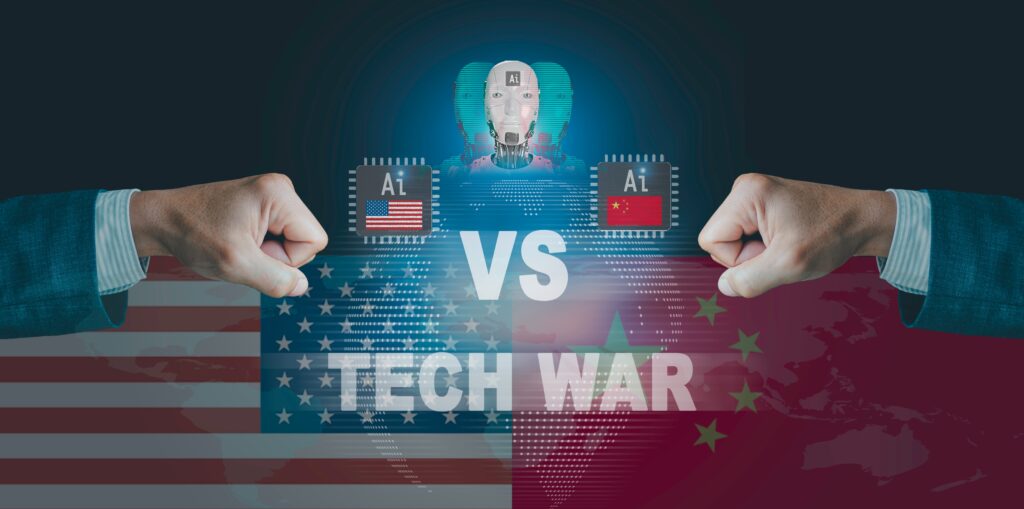
Nationalism fractures AI's future. Source: Shutterstock
By Bolaji Ojo
What’s at stake: The world faces the risk of a fractured innovation ecosystem, with the potential for billions of dollars in lost sales, disrupted supply chains, and diverging standards threatening economic growth and technological progress worldwide. As China and America tighten export controls, their efforts to throttle each other’s AI ambitions may accelerate domestic innovation while undermining global collaboration and slowing breakthroughs that benefit health, industry, and society.
The escalating technological rivalry between China and the United States has created a world where the march of artificial intelligence (AI) is now dictated as much by political maneuvering as by technological ingenuity. The battle lines are clear: export controls, nationalist economic strategies, and mutual distrust have thrown the global AI industry into a cycle of uncertainty, regional segmentation, and strategic realignment.
What was framed as the unstoppable rise of transformative technology is caught in the crossfire of geopolitics, with the global economic future, and the very shape of AI’s social impact, hanging in the balance. The ultimate cost: a splintered future where innovative technology and its economic dividends are locked behind rising national barriers, leaving businesses, citizens, and researchers to navigate a high-stakes, unpredictable landscape.
